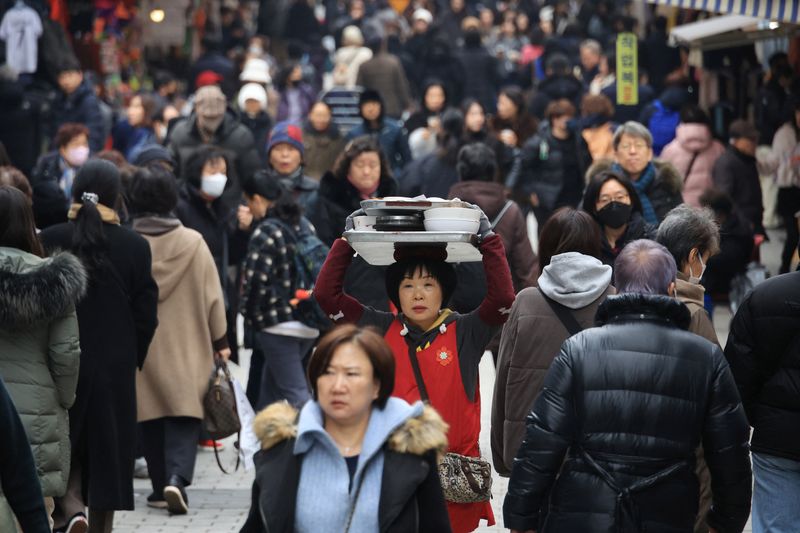SEOUL (Reuters) - South Korea consumer inflation slowed to a six-month low in January, official data showed on Friday, but policymakers warned of an uptick amid price pressures from heightened geopolitical tensions in the Middle East.
The consumer price index (CPI) stood 2.8% higher in January than the same month the year before, compared with a rise of 3.2% in December and 2.9% tipped in a Reuters poll of economists.
Inflation slowed for a third straight month, marking the slowest year-on-year rise since July 2023, mostly on a fall in oil prices, with petroleum products down 2.5% over the month.
However, inflation might rebound to around 3% in February and March as the recent geopolitical situation in the Middle East is driving up oil prices, Finance Minister Choi Sang-mok said after the date release.
The Bank of Korea also said in a statement there is a possibility of inflation "temporarily rising a little", following the governor's remarks on Thursday, suggesting a delay in any policy pivot.

South Korea's central bank in January suggested that it was done raising interest rates, but most board members saw monetary policy staying restrictive for some time to bring inflation down to its 2% target, citing uncertainty over supply-side pressures.
Core CPI, which excludes volatile food and energy items, rose 2.5%, weaker than a 2.8% rise in the previous month and the weakest since December 2021, according to Statistics Korea.